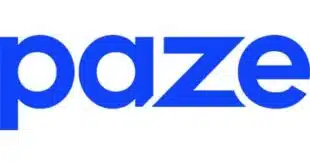MasterCard Inc. plans to pay off its remaining $400 million settlement obligation to retailers over debit card acceptance early for a discounted $335 million, according to a filing the card network made on Thursday with the Securities and Exchange Commission. Attorneys for the retailer plaintiffs have signed on to the proposed deal, which would happen Sept. 30 if it gets the required court approval. The case started in 1996 when retailers, upset about what they said was the high cost of accepting Visa- and MasterCard-branded signature debit cards, filed lawsuits challenging what were then the bank-owned card associations over their so-called honor-all-cards rules. The rules required merchants that accepted Visa and MasterCard credit cards to also accept the associations' debit cards. The cases were consolidated as a class action with more than 8 million plaintiffs and became known as the “Wal-Mart case” because of the participation of Wal-Mart Stores Inc., the nation's largest retailer. The card associations settled in 2003 for just over $3 billion?reportedly a record?as the case was headed to trial in U.S. District Court in Brooklyn, N.Y. MasterCard's portion called for payments into a settlement fund of $125 million by the end of 2003, followed by nine annual payments of $100 million. Visa's initial payments of $225 million were to be followed by annual payments of $200 million ending in December 2012. The card associations also agreed to drop their honor-all-cards rules and temporarily lowered signature-debit interchange. The deal is a clear example of the time value of money?more later, or a little less now. “This will allow us to pay the merchants early, and this is a time when stores need some money,” says New York attorney Lloyd Constantine of Constantine Cannon LLP, co-lead counsel for the merchants. “A lot of stores are closing, a lot of stores are laying off employees. For a lot of stores, this will be a very significant infusion of cash at a time when they really need it. The settlement in this case is the gift that keeps on giving.” Constantine says the merchants had court approval to securitize their payouts from Visa and MasterCard, though the card networks “had the right to beat what we got in the market.” He says he wouldn't be surprised if Visa makes an early payout. Visa had no comment Thursday. MasterCard says it is pleased to be paying off its obligations early. “We believe this is a good use of our cash and offers good returns,” a spokesperson tells Digital Transactions News by e-mail. “In addition, it allows us to put the remaining financial piece of this legacy litigation behind us.” A bigger question is whether the Wal-Mart case, which loomed large over the payments industry for seven years, did anything more than generate lawyers' fees and dollars for retailers, especially large ones. One long-time payments industry consultant doesn't think so. “Time has proven that the card brands cut a pretty good deal on this settlement,” says C. Marc Abbey, managing partner at First Annapolis Consulting Inc. in Linthicum, Md. “I would say the lasting effects are almost nothing.” Wal-Mart, in a show of force, briefly stopped accepting signature debit cards from MasterCard, which has a much smaller debit market share than Visa, but resumed. Abbey says very few, if any, other retailers have ever taken advantage of the rule changes that now permit them to reject the bank card networks' debit cards while still accepting their credit cards. He also notes that after their settlement-induced cuts, interchange rates on signature debit cards resumed a “normal market course” and edged upward. “The Wal-Mart case was being perceived as a win for the plaintiffs at the time, but if you look at the outcomes it's hard to view it that way in retrospect,” Abbey says. In fact, some of the major questions that arose out of the Wal-Mart case are being debated today as at least three interchange-related bills await action in Congress. The honor-all-cards debate now includes premium credit cards, which cost merchants more to accept that plain-vanilla cards. One bill would ban the higher premium differentials (Digital Transactions News, June 12).
Check Also
Diebold Nixdorf’s Windows 11 ATM Move and other Digital Transactions News briefs from 12/4/24
ATM maker Diebold Nixdorf Inc. said two bank clients in Central Asia are the first to launch …



